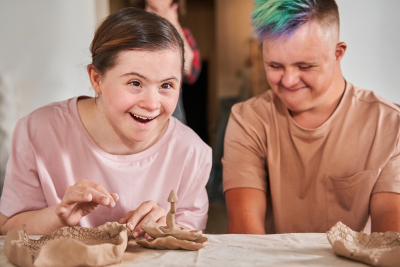Developing hygiene skills is a crucial part of fostering independence for individuals with developmental disabilities. Not only does it promote physical well-being, but it also boosts self-esteem, confidence, and social interactions. At Royal Residential Group Home Services, we believe that empowering individuals to take control of their personal hygiene can significantly improve their quality of life.
Why Hygiene Matters for Independence
Hygiene plays a vital role in maintaining both physical and mental health. By learning to manage hygiene routines like brushing teeth, bathing, and grooming, individuals with developmental disabilities can feel a sense of control and self-sufficiency. Good hygiene practices help reduce the risk of infections, skin conditions, and other health-related issues. Furthermore, mastering these skills builds self-esteem and allows individuals to feel confident in social situations, helping them build meaningful relationships with others.
Developing hygiene skills can be a gradual process, but with consistent guidance, individuals can achieve a level of independence that fosters greater autonomy. It’s essential to create a structured routine that helps them practice these skills in a way that’s both manageable and effective.
Strategies for Teaching Hygiene Skills
There are several strategies caregivers can use to help individuals develop their hygiene skills:
- Create a Visual Routine: Many individuals benefit from visual aids that outline the steps involved in a hygiene routine. Creating a chart or a checklist that can be followed daily helps reinforce the habit.
- Use Positive Reinforcement: Encouraging independence by providing positive feedback after each task can motivate individuals to continue practicing hygiene on their own.
- Offer Sensory-Friendly Products: Some individuals may have sensory sensitivities that make hygiene tasks uncomfortable. Providing products that are gentle on the skin, have mild scents, or offer soft textures can make a big difference.
- Set Realistic Goals: Breaking down hygiene tasks into smaller, more manageable steps can prevent individuals from feeling overwhelmed. Over time, these small steps lead to mastery of more complex tasks.
Helping individuals with developmental disabilities build their hygiene skills not only supports their health but also empowers them to feel more in control of their daily lives. If you’re looking for professional support to assist your loved one in developing these essential skills, contact us today to learn how we can help foster independence through compassionate care.


